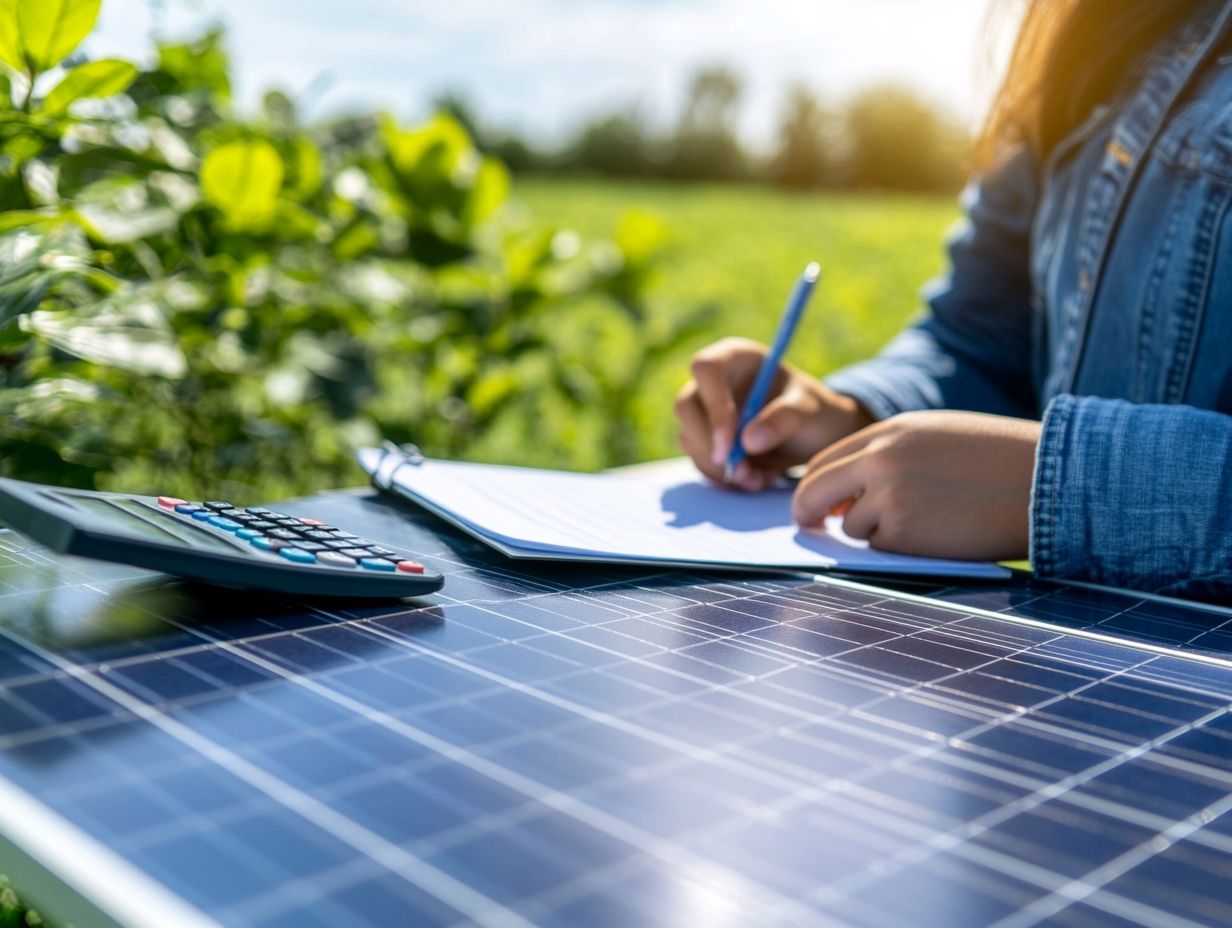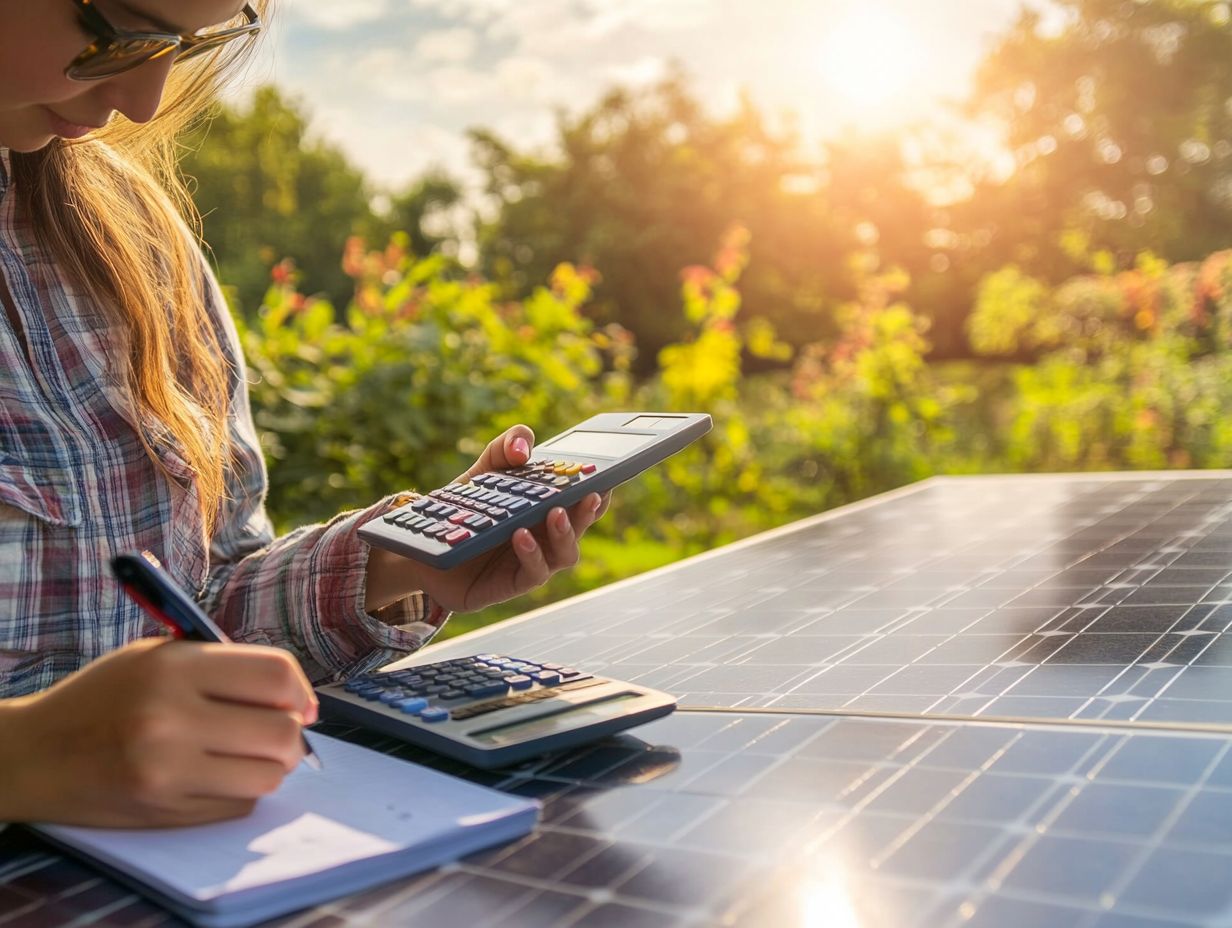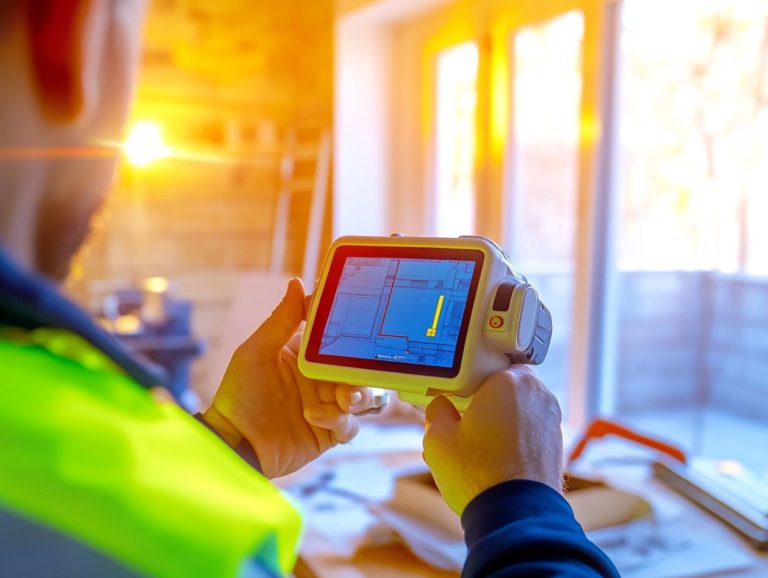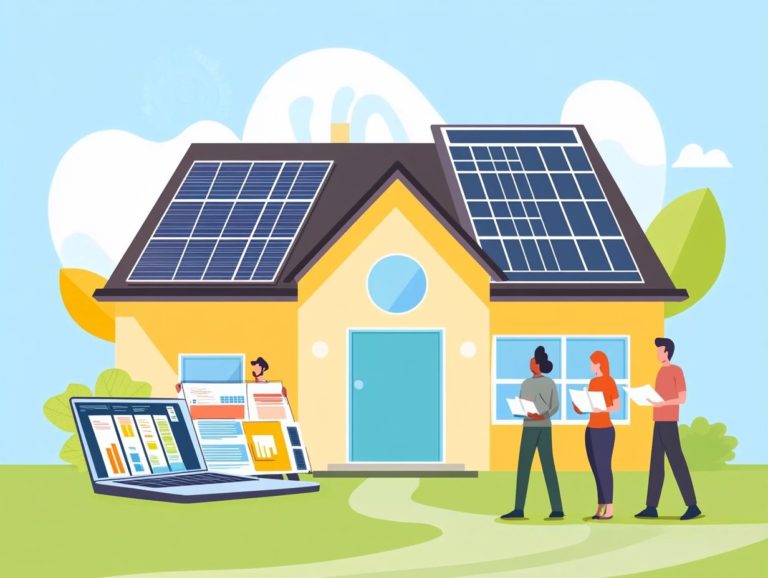How to Choose the Right Solar Solution?
In a world that values sustainability, solar solutions offer a powerful way to power your home or business. But how do you choose the right one for your needs?
This article covers the essentials of solar solutions. You ll learn about energy requirements, budgets, and the types available.
You ll also discover how to evaluate quality to ensure a wise investment. Let s explore how to find the perfect solar solution for you.
Contents
Key Takeaways:

- Consider your energy needs and budget.
- Check for quality through certifications and customer reviews.
- Factor in your location and climate.
Understanding Solar Solutions
Understanding solar solutions is essential! It s time to embrace renewable energy, where the shift to sustainable living has become crucial.
Embracing solar energy a clean and abundant resource can significantly reduce your carbon footprint and lower energy expenses.
With many solar solutions, including solar panels, solar PV modules, and solar battery systems, it’s vital to explore options that align with your specific energy needs.
This approach enables you to reap the financial benefits of solar energy while contributing to a greener planet through effective installation and financing options.
What are Solar Solutions?
Solar solutions encompass a diverse array of technologies and products designed to harness solar energy for practical use, addressing energy needs sustainably.
At the heart of these systems are solar panels, which convert sunlight into electricity through photovoltaic cells. These cells convert sunlight into electricity.
When you integrate these components effectively, you create a comprehensive and efficient energy management system. Various configurations are available, including grid-tied setups that let you feed surplus energy back to the power grid and off-grid systems that operate independently.
This flexibility lets you customize your solar energy setup to fit your lifestyle perfectly, enhancing both efficiency and reliability in your energy use.
Factors to Consider when Choosing a Solar Solution
Selecting the ideal solar solution requires careful consideration of several key factors, such as your energy needs, budget constraints, and understanding how to plan for solar panel installation, along with the quality of solar panels and installation services on offer.
By grasping these elements, you can confidently navigate the available options, ensuring you choose a system that fulfills your energy consumption requirements and yields substantial long-term savings.
Evaluating solar panel costs along with potential tax credits can improve the financial viability of your renewable energy investment.
Energy Needs and Usage
Assessing your energy needs and usage is a crucial first step in selecting the right solar solution for your home or business. It directly influences the efficiency and size of the necessary solar panels.
By reviewing your past energy bills, you can uncover valuable insights into your consumption patterns, revealing peak usage times and highlighting areas ripe for potential savings.
Understanding your typical monthly energy consumption allows you to take a personalized approach to selecting solar panels, ensuring that the system you choose aligns perfectly with your actual needs.
Your energy consumption is closely linked to the efficiency of the panels you decide on. Higher efficiency panels can generate more energy from the same amount of sunlight.
If your energy needs are lower, you might opt for compact, high-efficiency models. If you have larger energy demands, more robust options may be necessary to meet those needs.
Therefore, evaluating both your past consumption and your specific energy requirements is essential when determining the most suitable solar solution for you.
Budget and Cost-effectiveness

Setting a budget is your first step towards harnessing the power of the sun! When considering solar solutions, it’s important to evaluate cost-effectiveness since the initial costs of solar panels can vary significantly based on your choices.
Explore various financing options, such as solar loans, leasing, and power purchase agreements. These can make your transition to renewable energy much more accessible.
Understanding solar panel warranties is crucial; these warranties protect your investment over the system’s lifespan and ensure reliable performance.
Don t miss out on tax incentives like the federal solar investment tax credit that can greatly reduce your upfront expenses.
To gauge your potential savings from solar energy, take a close look at your electricity consumption and average energy costs. This will help you estimate how much a solar installation could lower your monthly bills.
Over time, these savings, combined with potential increases in your home s value, offer substantial long-term financial benefits for anyone investing in sustainable energy solutions.
Location and Climate
The effectiveness of solar solutions largely hinges on your location and climate, as these factors directly impact solar panel performance and energy production potential.
If you live in a region blessed with abundant sunlight year-round, you ll naturally generate more energy than those in areas with frequent cloud cover or shorter daylight hours.
Sunlight availability can vary significantly by geographic area, so it’s crucial to consider local conditions when designing your solar energy system. Shading from buildings, trees, or neighboring structures can dramatically reduce efficiency, highlighting the need for thorough site assessments.
Seasonal variations play a vital role. In areas with distinct seasons, you may need to employ different strategies for optimal panel placement to capture maximum sunlight throughout the year.
By analyzing your local climate and environmental conditions, you can strategically position your solar panels, tapping into the fullest potential of solar power.
Types of Solar Solutions
Solar solutions present a diverse range of options designed to suit your unique energy needs and preferences.
From solar panels that capture sunlight to solar batteries that store energy, and devices that convert sunlight into usable electricity, these components work together to create an exceptionally efficient solar power system tailored just for you.
Solar Panels
Solar panels are the heart of any solar energy system, carefully designed to transform sunlight into electricity. Their efficiency and quality can vary significantly based on the type you choose.
Understanding the different options available monocrystalline, polycrystalline, and thin-film panels is essential for making a well-informed decision.
Monocrystalline panels are often praised for their high efficiency and sleek appearance, making them an excellent choice for residential rooftops where space is limited.
Conversely, polycrystalline panels tend to be more budget-friendly, though they may have slightly lower efficiency, appealing to cost-conscious consumers.
Thin-film panels, while usually the least efficient, offer unique advantages like flexibility and lightweight characteristics, which can be beneficial for certain installations.
As you evaluate solar panel performance, consider efficiency ratings, temperature coefficients, and warranty options. This ensures you choose a product that offers long-term durability and effective energy production.
Start your solar journey today and discover how much you can save!
Solar Batteries
Solar batteries are essential in solar energy systems, enabling you to store excess energy generated during the day for use at night or during overcast conditions. This enhances your energy independence and ensures that you have a reliable power source when you need it most.
These advanced energy storage solutions provide a consistent power supply while maximizing the efficiency of your solar panels. As a result, you can significantly reduce your dependence on the grid.
You have a range of solar battery systems to choose from, including lithium-ion, lead-acid, and innovative technologies like flow batteries. Each is designed to meet specific energy requirements.
By embracing these systems, you can enjoy increased energy resilience, lower electricity costs, and play a vital role in promoting a cleaner environment. Integrating solar batteries into your energy setup is crucial for building a sustainable future and gaining greater autonomy in your energy consumption.
Solar Inverters

Solar inverters are essential for your solar energy system, transforming the type of electricity produced by your solar panels into the type used in homes. This process allows you to power your home or business effectively.
These devices are crucial for enhancing the overall efficiency of your solar setup, ensuring you can utilize the electricity produced to its fullest potential.
Among the various types of inverters available:
- String inverters are the most prevalent, allowing you to connect multiple solar panels in series.
- Microinverters are installed on each panel individually, maximizing output from every single unit and improving performance, especially in partially shaded conditions.
Power optimizers offer a hybrid solution, complementing string inverters to further enhance energy production. Collectively, these technologies play a significant role in boosting solar panel efficiency and reliability, making them essential for anyone looking to invest in solar energy.
Assessing the Quality of Solar Solutions
When you evaluate solar solutions, it’s crucial to assess the quality of the solar panels and related products. This assessment directly impacts performance, longevity, and ultimately, your satisfaction as a customer.
Certifications and Warranties
Certifications and warranties are essential markers of the quality and reliability of solar panels. They act as assurances from manufacturers about the performance and durability of their products.
Credentials like UL and IEC certifications ensure that the solar panels you consider meet rigorous safety and efficiency standards, fostering your confidence as a consumer. Robust warranties often extending 25 years or more not only protect your financial investment but also demonstrate the manufacturer s commitment to enduring performance.
Companies such as SunPower and LG have cultivated strong reputations through innovative technologies, including high-efficiency cells and resilient designs, which further enhance their reliability.
Investing in certified solar solutions now means peace of mind for your budget and the environment!
Customer Reviews and Feedback
Customer reviews and feedback offer invaluable insights into the performance and reliability of solar solutions, enabling you to make informed decisions.
By looking into these testimonials, you can assess not only the satisfaction levels of previous users but also gain a clear understanding of the real-world performance of various solar panel manufacturers.
This feedback often sheds light on key factors such as installation efficiency, the responsiveness of customer support, and the actual energy savings experienced by users.
Such insights can significantly influence your perceptions of the effectiveness of different solar energy systems, guiding you toward selecting reliable products tailored to your specific needs.
Ultimately, the shared experiences of others can bolster your trust and confidence in solar technology, making your transition to renewable energy both smoother and more reassuring.
Frequently Asked Questions
If you have more questions or would like to explore your solar options, feel free to reach out for more information!
What factors should I consider when choosing a solar solution?

When choosing a solar solution, consider your energy needs, budget, and available space. Also, check the efficiency and durability of the solar panels.
How do I determine my energy needs?
You can determine your energy needs by checking how much energy you use each day and month. Look at your past energy bills for guidance.
What types of solar panels are available?
There are three main types of solar panels:
- Monocrystalline: Made from a single crystal and very efficient.
- Polycrystalline: Consists of multiple crystals.
- Thin-film: Lightweight and flexible.
What is the typical lifespan of a solar panel?
The typical lifespan of a solar panel is 25-30 years. However, this can vary based on the type and quality of the panel.
Should I purchase or lease my solar panels?
Deciding whether to purchase or lease depends on your situation. Buying panels gives you ownership and tax incentives, while leasing can lower upfront costs and maintenance duties.
How do I choose the right solar company?
When choosing a solar company, research their reputation and customer reviews. Be sure to ask for quotes! This helps you find the best price quickly.






